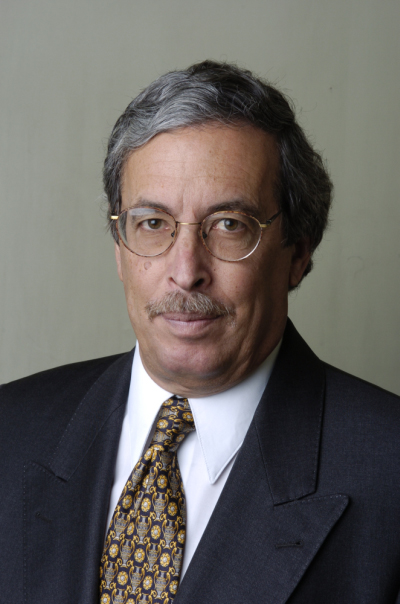Edward Snowden’s ‘Here I stand, I can do no other’
On April 18, 1521, Martin Luther appeared before the Diet of Worms to defend his posting of the 95 theses criticizing the Catholic Church’s selling of indulgences as a guarantee of going to Heaven.
He refused to recant, risking excommunication. In his final declaration, in the face of the powers of the Church and the Holy Roman Empire, Luther is supposed to have said, “I cannot and will not recant anything, since it is neither safe nor right to go against conscience. May God help me. Amen. Here I stand, I can do no other”.

One of the highlights of the recent International Film Festival and Forum on Human Rights was the projection of the film Citizenfour, a 2014 documentary directed by Laura Poitras concerning Edward Snowden and the NSA spying scandal. It was awarded the 2015 Academy Award for Best Documentary Feature. The film itself is merely the retelling of what happened when Snowden contacted Poitras and later the Guardian journalist Glenn Greenwald, the eventual newspaper revelations of the NSA surveillance programs and Snowden’s exile in Russia. However, the video interview of the American by Darius Rochebin after the projection was riveting.
There has been a great deal written about Snowden, but seeing and hearing him on skype was revealing. Not yet 31 years old, he showed maturity, humor, and a sense of purpose and calm about what he had done as well as the eventual consequences. He was nostalgic about going home to the United States to see his friends and surroundings, but mentioned the possibility of being given refugee status in Switzerland, particularly Geneva, where he had lived and worked for two years. Not only did he refer to Geneva as “an espionage capital” because of all the Missions, diplomats, international organizations and NGO’s here, but he praised the diversity of the population where “all feel part of the same world”.
When asked about his courage in the face of obvious punishment, he said, “It was not courage, it was a necessity” to reveal what he knew. When asked about those who call him a traitor, he replied, “People who truly love their country stand up” when confronted with what they see to be policies that are in direct violation of fundamental American values.
Snowden’s responses to Rochebin’s questions echoed many of Martin Luther’s words. Both men acted because of conscience and both felt the necessity to criticize what was an accepted norm at that time. Both were punished for their actions, but both accepted the consequences since they felt that their actions were just. Both felt driven by a higher calling. Luther’s 95 theses and his refusal to recant were instrumental in the Protestant Reformation. They were also instrumental in the wars of religion that divided Europe during the late Middle Ages.
What will be the results of Snowden’s revelations? President Obama has said that even before the NSA revelations studies were being made to guarantee that the right to privacy of Americans was being respected in the face of national security concerns. The President has sought to assure the American people that Big Brother has not been turned loose in the United States. Many are skeptical, much remains clouded in mystery.
Snowden himself seems at peace with his situation. From the beginning, he noted, he has been willing to accept the consequences of what he did. While he has been refused refugee status in 21 European countries, he seems prepared to stay in Russia, if permitted, and even ready to return to the United States if given guarantees of a fair trial. For the moment, he said, the Americans have only proposed a trial by a single judge without jury and that he will not be executed. He has insisted upon judicial transparency as a condition of returning.
Snowden’s maturity and humor pleased the audience. He was interrupted several times by applause. Was his an act of courage? An act of a traitor? An act of a psychopath? People I was with found him boring. Some even believe he is still working for the CIA. Snowden believes he is right. He says his conscience drives him. Is that enough? Who are we to judge? On what bases can we judge him? Acts of conscience are often divorced from reality. Luther became a central figure in the Protestant Reformation because his acts of conscience had followers. There were results; people fought and died because they believed and acted on what he did and said. Snowden has intellectual and emotional followers, but there have been no call to arms to follow what he has done. He was not even been a talking point in the past US elections.
For the moment, Edward Snowden appears an interesting figure in the post-911 saga but not more. His revelations have not been followed by a mass movement, certainly not by a revolution against the government or its policies. While his act of conscience and acceptance of consequences are admirable, they remain buried under breaking news headlines. But, after all, it was the followers of Luther who made the Reformation, not Luther. It is now up to followers of Snowden to carry on with concrete action. Snowden stood up, will others follow?
The views expressed in this article are solely those of the author, and do not necessarily reflect the views of swissinfo.ch
Opinion series
swissinfo.ch publishes op-ed articles by contributors writing on a wide range of topics – Swiss issues or those that impact Switzerland. The selection of articles presents a diversity of opinions designed to enrich the debate on the issues discussed.

In compliance with the JTI standards
More: SWI swissinfo.ch certified by the Journalism Trust Initiative









You can find an overview of ongoing debates with our journalists here . Please join us!
If you want to start a conversation about a topic raised in this article or want to report factual errors, email us at english@swissinfo.ch.